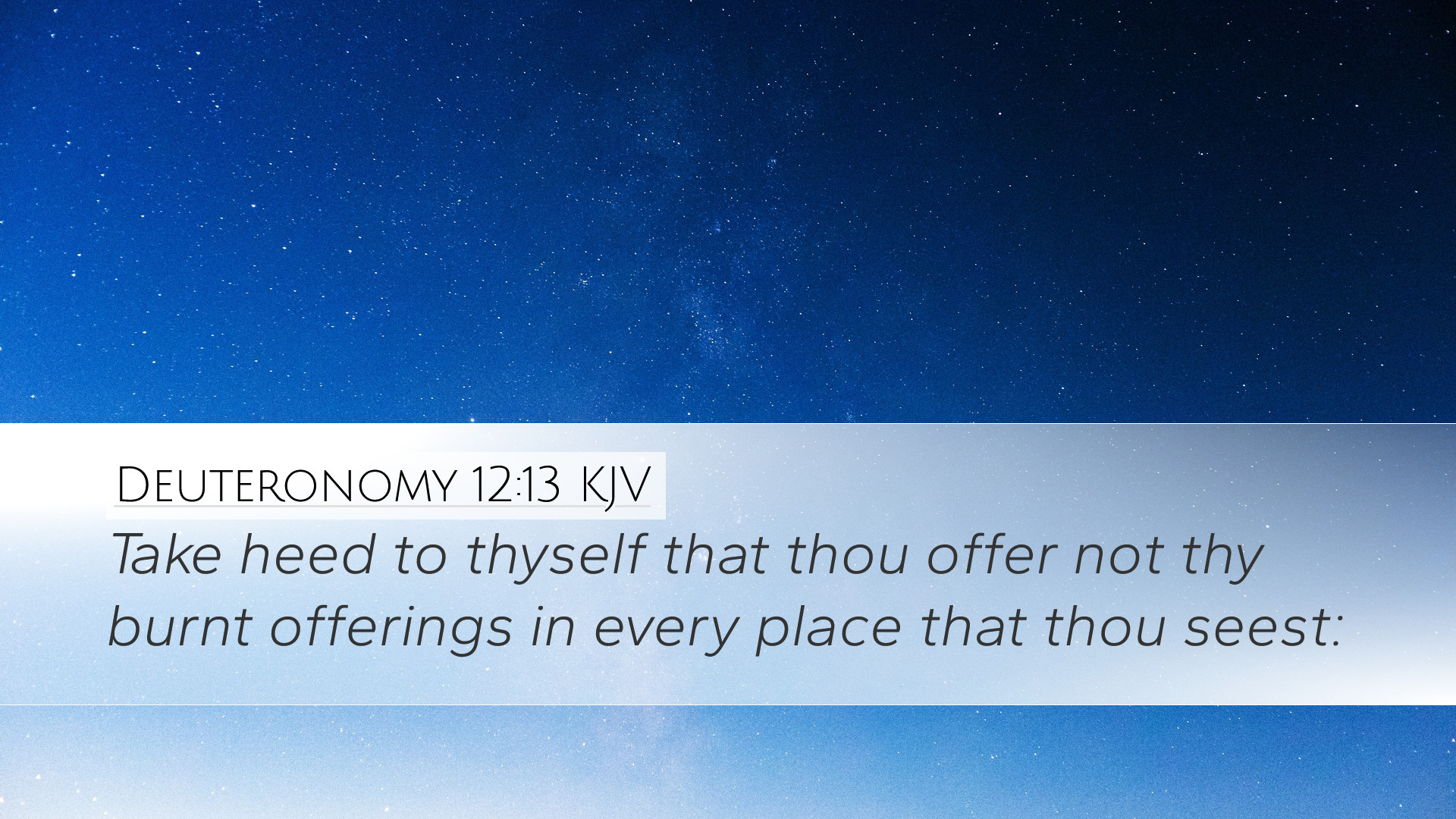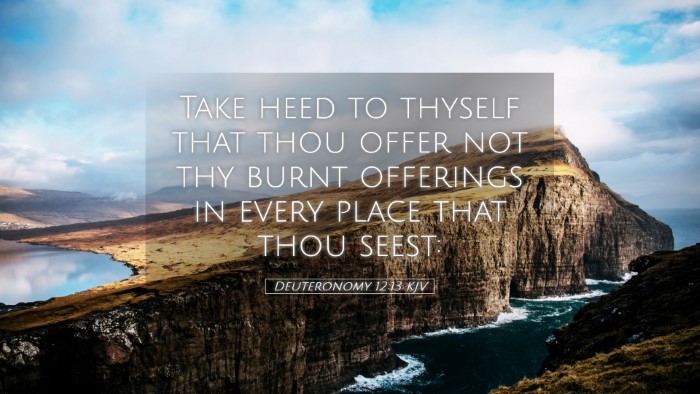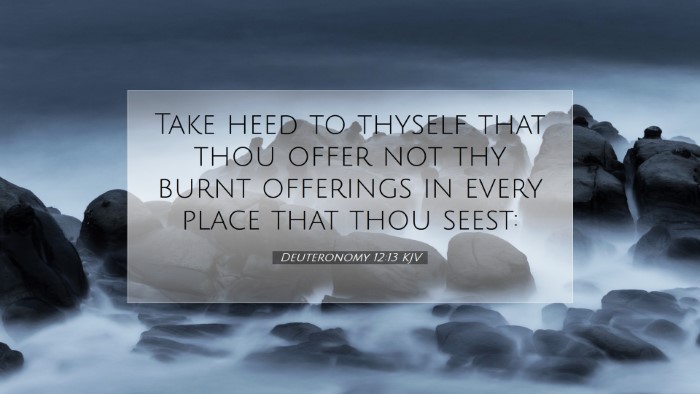Commentary on Deuteronomy 12:13
Verse Text: "Take heed to thyself that thou offer not thy burnt offerings in every place that thou seest."
Introduction
Deuteronomy 12:13 serves as a pivotal passage within the broader context of worship regulation among the Israelites. This verse alerts the faithful to the importance of adhering to divine command regarding sacrificial offerings, emphasizing a centralized place for worship. Renowned commentators such as Matthew Henry, Albert Barnes, and Adam Clarke offer profound insights into the spiritual and theological implications of this directive.
Verse Analysis
In examining this verse, several key themes emerge: the precaution against improper worship, the significance of authorized places for sacrifices, and the underlying principle of divine order in worship.
1. The Warning Against Improper Worship
Matthew Henry highlights the necessity of caution in worship practices. The command to take heed serves as a reminder that where and how worship is conducted matters greatly to God. This is not merely a procedural issue; it reflects the heart's posture toward the holiness of God. True worship must be conducted with reverence and according to God's ordinances.
2. Centralization of Worship
Albert Barnes expounds on the centralization of worship established in this context. The Israelites are instructed not to offer their sacrifices wherever they please, but rather at the designated place that God would choose among them. This instruction serves the dual purpose of maintaining unity among the tribes of Israel and ensuring that worship is focused on the truth of God’s presence in the chosen sanctuary. This principle of centralization anticipates later developments in the religious life of Israel, particularly concerning the Temple in Jerusalem.
3. Divine Order in Worship
Adam Clarke emphasizes the element of divine order that permeates the directive in Deuteronomy 12:13. Clarke points out that the Israelites had been previously exposed to the practices of surrounding nations, which often involved unsanctioned and chaotic forms of worship. By instituting a specific place for offerings, God distinguishes the Israelites from pagan practices and provides them with an ordered approach to worship that reflects His holiness and authority.
Significance for Spiritual Leaders
This verse and its associated commentaries hold great significance for pastors and spiritual leaders today. The directive underscores the importance of adhering to biblical principles regarding worship and ministry. The seriousness of this admonition invites pastors to reflect on various aspects of worship in their congregations:
- Proper Context for Worship: Are worship practices aligned with scriptural teachings, or are they influenced by contemporary trends that may stray from biblical fidelity?
- Unity in Worship: How does the church promote unity in worship when there are diverse expressions and preferences among congregants?
- Maintaining Reverence: Are the approaches to worship fostering a reverent attitude toward God? Are offerings, whether musical, financial, or communal, presented in a manner that reflects God’s holiness?
Theological Implications
The theological implications of Deuteronomy 12:13 extend into New Testament teachings about worship. Jesus emphasized the importance of worshiping God in spirit and truth (John 4:24), which echoes the sentiment found in this Old Testament directive. Furthermore, the epistle to the Hebrews reaffirms the concept of accessing God through a designated mediator—Christ—as the ultimate sacrifice.
1. Worship as a Reflection of Relationship
The requirement for a specified place of sacrifice indicates that worship is not merely about rituals but is intimately tied to the relationship between God and His people. The New Testament calls believers the temple of the Holy Spirit (1 Corinthians 6:19), indicating that worship is to be a life lived in communion with God.
2. Emphasis on Holiness
The emphasis on offering sacrifices in a designated place reflects the call to holiness. In the New Covenant, believers are called to be holy as God is holy (1 Peter 1:16). Worship, therefore, requires a heart that seeks purity and alignment with God’s will.
Conclusion
Deuteronomy 12:13 imparts essential principles for appropriate worship that remains relevant for today’s believers. The insights provided by esteemed commentators offer depth to our understanding, focusing on sacredness, order, and divine instruction in worship practices. Pastors, theologians, and students alike are urged to reflect upon these truths within their communities of faith.


